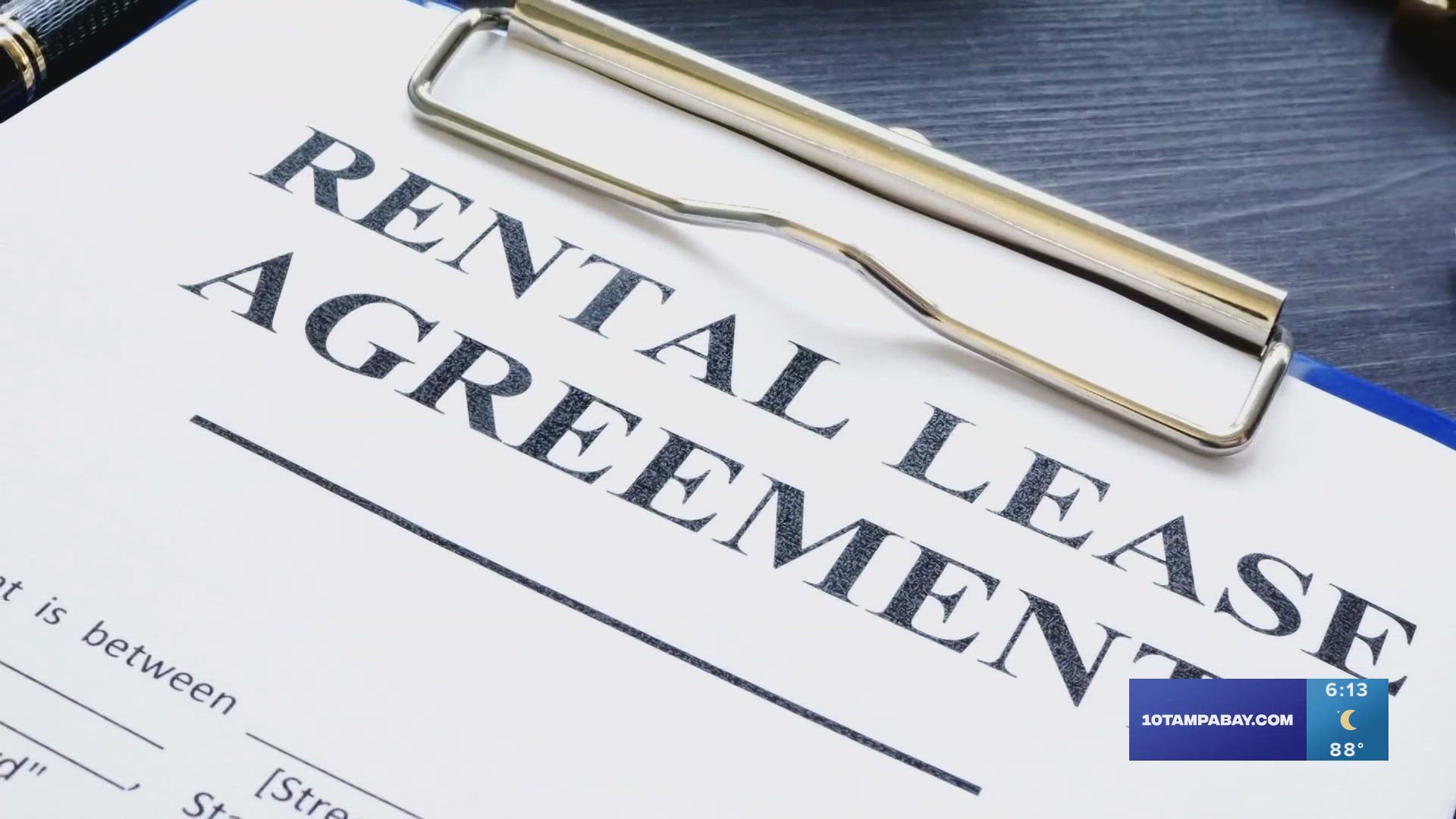ST. PETERSBURG, Fla. — The beginning of the month is normally when you pay your rent, but you might be wondering what you should do if the place you rent isn't livable right now.
Whether you rent from a private landlord or a large corporation, there are a couple of things you should do right now if you have found any damage in your place.
Attorney Charles Gallagher says first, review your lease front to back. See if there is and clause or provision for casualty loss like a fire or storm, and understand your rights.
Second, contact your landlord about the condition of the property and make sure you put it in writing. While larger apartment complexes might be able to relocate you, smaller ones and private landlords might not have that option. Gallagher says if your property isn't livable, a judge is not going to make you pay rent. On top of that, you should get your deposit back.
“It's about equity, and it's about whether or not you can actually use that unit,” Gallagher said. "You have the right to have a habitable space. And if there are things in that habitable space or that space that make it inhabitable, for example, mold developing, or there being, you know, the roof having some void in it, there being holes in the walls, into that nature, power not working, then you have the right to give the landlord what's called a Notice of Material Non-compliance.”
That’s a 7-day notice, which tells the landlord that if the conditions are not brought up to par, on day eight, your lease will terminate.
Gallagher also says if your home is livable, but your car is a loss or you're out of work because of the storm, you should talk to your landlord about your situation and see if they will accommodate any late payments. While the landlord could opt to evict you, it’s probably in their best interest to work with you instead.
“If you have people that are asking for help, probably accommodate them as a prudent business practice for landlords and the right thing to do,” Gallagher said.
There could be some rental protections coming down the pipe like what was enacted during the pandemic to protect people from evictions. Gallagher recommends in the meantime, applying for any available assistance.
"As a tenant, certainly you want to go ahead and apply for every possible venue, possibly even if in terms of a FEMA disaster application as well. So be proactive, and don't let the process come to you. Go ahead and begin the process yourself," Gallagher said.
If your friends or family have booked a vacation rental to visit before the storm and are reconsidering their plans, getting a refund might come down to the fine print.
“Every Airbnb host has, you know, different terms and conditions whenever you use the app, you're stuck with whatever you've agreed to at the outset with the individual host, as well as the Airbnb site facilitating it. So, you need to go ahead and read that Airbnb terms conditions sheet that you see. Typically, they give you, like, staggered time frames on how much you'll get back,” Gallagher said.
He adds though if the property isn’t habitable, it shouldn’t be a problem.
If you have a legal question, you can call Volunteer Florida's Disaster Legal hotline. It's 833-514-2940.

